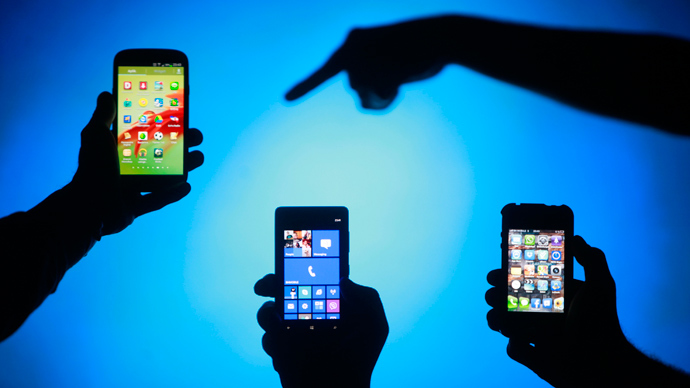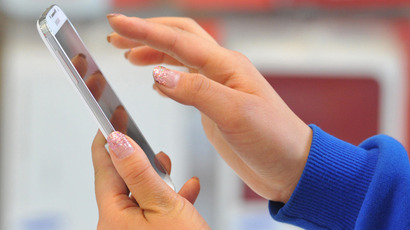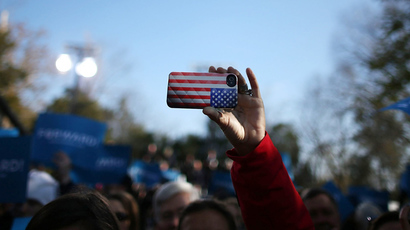Cellphone tracking cases highlight privacy concerns in digital age

In recent weeks, two cert petitions were filed seeking review of whether the Fourth Amendment covers police searches of cellphone records upon arrest.
From mobile phone and GPS tracking to license plate reading and
domestic surveillance drones -- not to mention recent revelations
of widespread abuse of surveillance capabilities by the National
Security Agency -- these cases and many others highlight major
questions that remain unanswered regarding how privacy rights of
Americans can co-exist with the use of rapidly evolving
technologies.
State and federal law enforcement agencies have wasted no time
seizing on gaps and omissions in established legal precedent to
justify vast, routine surveillance of the American public which
tests Fourth Amendment rights.
On July 30, a petition was filed in Riley v. California
challenging a previous ruling in a California appellate court
that affirmed the petitioner’s convictions, which stemmed in part
from a questionable search of his smartphone in 2009 following a
traffic stop for expired license plates. And late last week, the
US Department of Justice filed a petition in United States v.
Wurie asking for review of a First Circuit Court of Appeals
ruling that police needed a warrant to access a suspect’s phone
records. Regarding Wurie, the government contends a cell
phone is no different from any other item on a suspect at the
time of arrest. The search pertaining to Wurie occurred in
2007.
On the surface, the two cases have much in common. But in
Riley, the phone in question is a smartphone - a Samsung
Instinct M800. In Wurie, the cellphone was a Verizon LG
flip-phone incapable of maintaining the breadth of information -
including internet searches, email, photos and other media - that
a smartphone can store.
As of May, Pew Research Center found that 91 percent of American
own cellphones, and 61 percent of those cellphones are
smartphones.
GPS technology has received more scrutiny from courts than
cellphones have in recent years. Last week, the Justice
Department appeared before a federal court defending its right to
shield legal memos that provide guidance to federal prosecutors
and investigators for how to use GPS devices and other surveillance
technologies from the public. In a sense, the memos were
released upon a Freedom of Information Act request by the
American Civil LIberties Union (ACLU), though their contents were
heavily redacted.
The memos (read here and here) were legal interpretations of a January
2012 Supreme Court ruling in United States v. Jones in
which the court ruled the use of GPS technology to track a car’s
movements constitutes a “search” within the parameters of the
Fourth Amendment. Upon release of the indecipherable legal memos,
the ACLU filed a lawsuit seeking the full, uncensored guidelines.
“While we agree that executive branch lawyers should be able
to freely discuss legal theories, once those opinions become
official government policy the public has an absolute right to
know what they are,” wrote Brian Hauss, legal fellow with the
ACLU’s Speech, Privacy and Technology Project. “Otherwise, the
government is operating under secret law that makes
accountability to the people impossible.”

The ruling in United States v. Jones left many unanswered
questions regarding the use of other location-monitoring
technologies pertaining to, for example, the tracking of
cellphones or the use of license-plate readers - not to mention
the use of surveillance drones in the US. In addition, the Jones
ruling fell short of even determining whether a warrant is
necessary to use GPS devices.
Building on the Jones decision, New Jersey recently became
a state ahead of the curve in defining rules for law enforcement
and privacy rights in the digital age. The New Jersey Supreme
Court ruled in July that state police must have a search warrant before obtaining tracking
information from cellphone providers.
“Using a cellphone to determine the location of its owner can
be far more revealing than acquiring toll billing, bank, or
internet subscriber records,” Chief Justice Stuart Rabner
wrote in the case’s opinion. “Details about the location of a
cellphone can provide an intimate picture of one’s daily life and
reveal not just where people go - which doctors, religious
services and stores they visit - but also the people and groups
they choose to affiliate with. That information cuts across a
broad range of personal ties with family, friends, political
groups, health care providers and others.”
In June, Montana became the first state to require police to
obtain a warrant before tracking a suspect’s cellphone.
In March 2012, the ACLU reviewed records from over 200 local
police departments, finding vast, aggressive use of cellphone
tracking for emergency and nonemergency uses.
Another ACLU report, released in July of this year, queried
around 600 local and state police departments (and other state
and federal agencies) via public records requests to assess how
these agencies use automatic license plate readers. The civil
liberties organization found massive databases of innocent
motorists’ location information gleaned through hundreds of
millions of “plate reads” by the ubiquitous readers. Data is
often stored for an indefinite period of time, revealing just how
easy it is for law enforcement - as well as many private
companies - to track any license plate with few legal
restrictions in place to stop them.
For example, for every one million plates that were read in the
state of Maryland in the first half of 2012, 2000 (0.2 percent)
were hits, mostly regarding registration or emissions issues. Of
those 2000 hits, less than 3 percent (47) were potentially
connected to more serious crimes.
In addition, much of this network of readers throughout the
nation is in place thanks to a large amount of federal funding -
$50 million in the last five years.
Approval of licenses for domestic drones has begun, as RT has
reported, even though solid rules for their eventual use in
American skies have yet to materialize from either Congress or the
Federal Aviation Administration. The FAA expects as many as
30,000 drones in American airspace by 2020.
For now, many local law enforcement agencies are leading the
quest for drone-use approval, though requests for commercial
drones are mounting. As of February 15, 2013, there were 327
active drone certifications despite there being no regulatory
framework in place. However, the FAA did get around to certifying
two types of unmanned aircraft for civilian use in the US in late
July.
In the meantime, federal government agencies have used drones
domestically both out in the open and in secret. The Federal
Bureau of Investigation has admitted to already using
surveillance drones despite no established law or guidelines for
their use. The US Department of Homeland Security has used
surveillance-capable drones along the border for years, even
allowing other federal agencies to use its fleet to the tune of
250 times in 2012 alone, The New York Times reported.














